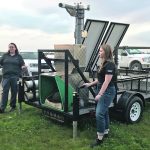Study uses unique technology to measure the link between feed efficiency and enteric methane emissions in beef cattle
Feeding canola oil to beef cows could be one way to reduce their enteric methane emissions and increase feed efficiency. University of Guelph researchers adopted unique technology to investigate the link between feed efficiency and enteric methane emissions. Feed-efficient cattle reduce farmer costs, and lower enteric methane can help with greenhouse gas emission issues, creating […] Read moreTag Archives methane emissions

Methane emission less than predicted
Prairie wetlands provide a whack of environmental benefits. They reduce the risk of flooding, help purify water, store carbon and are a critical habitat for ducks. On the downside, they emit methane, a powerful greenhouse gas. But research from Ducks Unlimited Canada suggests that wetlands in Western Canada produce less methane than wetlands in warmer […] Read more

Farmers can select for methane-efficient cows
World-first approach could reduce a herd’s methane emissions by 20-30 per cent by 2050, help meet industry’s GHG goals
A world-leading approach to creating a methane-specific breeding index has been developed by Lactanet. Not content to wait until “sniffer” technology for measuring bovine methane emissions eventually becomes more affordable, the Canadian dairy data collection and genetics analysis organization developed the index based on milk samples. “Canada will be the first country globally to offer […] Read more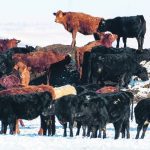
No miracle solutions expected to reduce cattle emissions
Nobody should expect a miracle additive or measure to shut down methane emissions from cattle, says a senior Agriculture Canada researcher. Methane comes from the fundamental process of ruminant digestion, so it’s unlikely to be eliminated while productivity is maintained. “For the most part, these are going to only result in marginal reductions in methane […] Read more
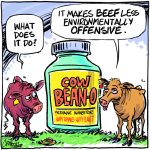
There’s now a way to usurp the burp
Canada has some great regulatory systems for agriculture and food. For the most part, they’re science-based and consumer friendly, designed to protect the public but also the nation’s reputation for providing safe food. But sometimes regulators fail to see the herd for the cattle. Changes in agriculture can be delayed for years while awaiting regulatory […] Read more
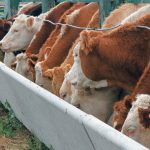
Feed additive remains years away in Canada
In late February, the European Union approved use of a feed additive that can reduce methane emissions from cattle by 30 to 40 percent or more. In Canada, the product may not be on the market for years because Health Canada and the Canadian Food Inspection Agency have classified the additive as a veterinary drug. […] Read more
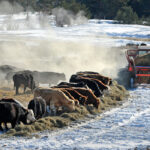
Cows and cars should not be conflated in climate change debates
With world leaders gathered for the COP26 summit in Glasgow, there is much talk of methane emissions and belching cows. The Global Methane Pledge, led by the US and EU and now with many country signatories, aims to reduce methane emissions by 30 percent by 2030. This is seen as a “quick win” to reduce […] Read more
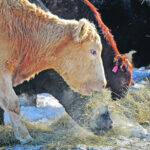
Methane pledge’s effect on cattle sector uncertain
Canada has committed to reduce methane emissions by 30 percent, but it’s unclear if the country’s cattle sector will have to meet that target. Last week Jonathan Wilkinson, minister of the environment and climate change, announced Canada’s support for the Global Methane Pledge, which aims to reduce global methane emissions by 30 percent below 2020 […] Read more
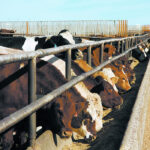
To save the planet, focus on cutting methane – U.N. climate report
Aug 9 (Reuters) – In four decades of climate negotiations, the world has focused intensely and exclusively on the most abundant climate-warming gas: carbon dioxide. This year, scientists are urging a focus on another potent greenhouse gas – methane – as the planet’s best hope for staving off catastrophic global warming. Countries must make “strong, […] Read more
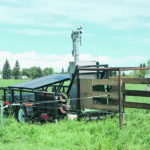
Feed additive may reduce methane emissions
Agriculture Canada and Alberta Cattle Feeders Association participated in a two-year trial that studied the technology
A novel feed ingredient may soon provide a breath of fresh air to livestock producers and the environment. A two-year, large-scale trial in Alberta beef cattle has demonstrated that a feed additive called 3-NOP, added to commercial feedlot diets, can reduce methane emissions by up to 80 percent without negative impacts on animal health, performance […] Read more
